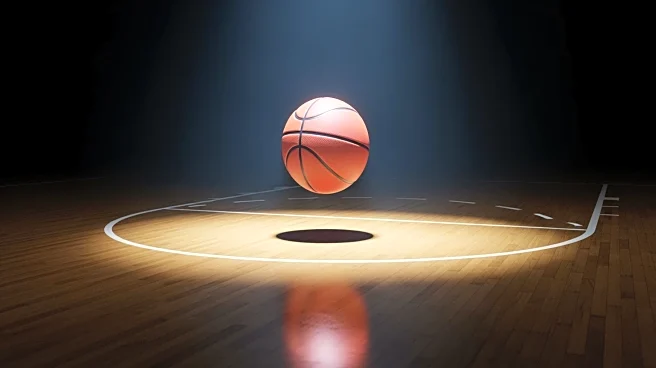What's Happening?
Tristan da Silva, a forward for the Orlando Magic, is making significant strides in his second NBA season, defying the common 'sophomore slump' that many young athletes face. Over the first nine games
of the season, da Silva has improved his performance, particularly in three-point shooting and defense. He is averaging 11.8 points per game with a 43.9% success rate from beyond the arc, along with 2.9 rebounds and 1.1 steals per game. His performance places him among the top sophomores in the league, ranking seventh in total points and third in three-point percentage among his peers. Despite his achievements, da Silva has played fewer minutes compared to other second-year players, suggesting potential for even greater contributions to the team.
Why It's Important?
Tristan da Silva's development is crucial for the Orlando Magic as they seek to build a competitive team. His ability to maintain and improve his performance in his second year is a positive sign for the team's future. Da Silva's enhanced shooting and defensive skills contribute to the Magic's overall strategy, providing them with a reliable option off the bench. His progress also highlights the effectiveness of the team's coaching and development programs, which are essential for nurturing young talent. As da Silva continues to grow, he could become a key player for the Magic, potentially influencing their success in the league.
What's Next?
Following their game against the Boston Celtics, the Orlando Magic will face the Portland Trail Blazers. This matchup provides another opportunity for Tristan da Silva to showcase his skills and further solidify his role within the team. Additionally, the Magic will host 'Seats for Soldiers Night,' an event honoring military personnel, which could boost team morale and community support. As the season progresses, da Silva's performance will be closely watched to see if he can maintain his upward trajectory and contribute to the Magic's success.
Beyond the Headlines
Tristan da Silva's performance not only impacts the Orlando Magic but also serves as an inspiration for other young athletes facing the pressure of their second professional season. His ability to avoid the sophomore slump could encourage teams to invest more in player development and support systems. Furthermore, da Silva's success may influence the Magic's strategic decisions regarding player rotations and game plans, potentially leading to a more dynamic and adaptable team.








